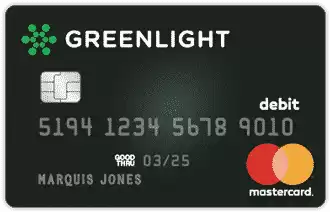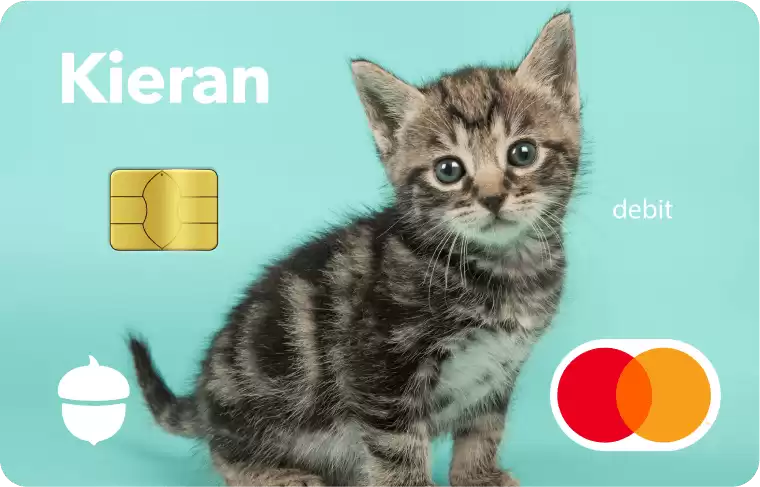Most banks will allow you to open a checking or savings account as long as you are 18 years old.
If you are under 18 years old, you may still be able to open a checking or savings account with a parent or guardian as a joint account holder.
Some banks may have special accounts for minors that come with parental controls and oversight.
How to Open a Bank Account
To open a bank account, you will need to bring some form of identification such as your driver's license, passport, or state ID card. You will also need to have your Social Security number handy. You'll need these documents for you and your co-owner if you are under 18 years old.
When you arrive at the bank, let the teller know that you would like to open an account and they will provide you with the necessary paperwork. Once you have filled out the paperwork and provided the required identification, you will need to make an initial deposit into your new account. This can be done by cash, check, or transferring funds from another account. After your deposit has been processed, you will be able to start using your new bank account.
Now that you know how old you have to be to open a bank account and the steps involved in opening an account, it's time to start looking for the right bank account for you.
Which Bank Accounts Can You Open as a Minor?
If you are under the age of 18, you may still be able to open a checking or savings account with a parent or guardian as a joint account holder. Some banks may have special accounts for minors that come with parental controls and oversight.
1. Custodial Accounts

A custodial account is an account that is set up by an adult for a minor. The minor is the account owner, but the adult controls how the money in the account can be used. Once the minor reaches the age of 18, they will gain full control over the account.
There are two types of custodial accounts:
UTMA Accounts: A UTMA account, or Uniform Transfers to Minors Act account, can be opened at most banks and brokerage firms. These accounts can hold cash, stocks, bonds, and other investments.
UGMA Accounts: A UGMA account, or Uniform Gifts to Minors Act account, can only hold cash and securities. Unlike UTMA accounts, UGMA accounts can be opened at any financial institution that offers savings or investment products.
How to Open a Custodial Account
If you want to open a custodial account for a minor, you will need to bring the following items to the bank:
- The minor's Social Security number
- Proof of the minor's identity, such as a birth certificate or passport
- Your own identification, such as a driver's license or passport
Once you have all of the required documents, you will need to fill out an account application. When you open the account, you will be named the custodian. The minor will be the account owner.
You will also need to decide how the money in the account can be used. You can use it for education expenses, medical expenses, or any other purpose that you see fit.
When the minor reaches the age of 18, they will gain full control over the account and can use the money for any purpose that they choose.
Benefits of Opening a Custodial Account
There are several benefits of opening a custodial account for a minor:
- The money in the account can be used for the minor's education, medical expenses, or other needs.
- The account can be used to teach the minor about saving and investing.
- The account can be used to help the minor build a credit history.
Drawbacks of Opening a Custodial Account
There are also some drawbacks to opening a custodial account for a minor:
- The money in the account belongs to the minor and can be used for any purpose once they reach the age of 18.
- The account could be subject to taxes and fees.
- The account could have a negative impact on the minor's financial aid eligibility.
Related: 10 Best Debit Cards for Kids and Teens
2. Joint Accounts
A joint account is an account that is owned by two or more people. All of the account holders have equal access to the account and can use the money for any purpose.
Joint accounts are typically used by family members or close friends. They can be used for saving, spending, or investing. A minor would need a parent or guardian to set up a join account.
The benefits of joint accounts are:
- All of the account holders have equal access to the account.
- The account can be used for any purpose.
- The account can help build a credit history.
The drawbacks of joint accounts are:
- If one of the account holders misuses the account, it could affect the other account holders.
- If one of the account holders dies, the account could be frozen.
- The account could be subject to taxes and fees.
3. Prepaid cards
Prepaid cards are debit cards that can be loaded with money. They can be used for making purchases or withdrawing cash.
Prepaid cards are a good option for people who don't have a bank account or for people who want to limit their spending.
The pros of prepaid cards are:
- They can be used anywhere that accepts debit cards.
- They can help you limit your spending.
The cons of prepaid cards are:
- Some prepaid cards have monthly fees.
- Some prepaid cards have limits on how much money can be loaded onto the card.
4. Legal Emanicipation
In some states, minors can be legally emancipated from their parents. This means that they are no longer considered to be under the legal control of their parents.
Minors who are emancipated have the same legal rights and responsibilities as adults. This includes the right to open a bank account, enter into contracts, the right to sue, and the responsibility to pay taxes.
The pros of emancipation are:
- Minors who are emancipated have the same legal rights and responsibilities as adults.
- Emancipated minors can open their own bank accounts and enter into contracts.
The cons of emancipation are:
- Emancipated minors are responsible for their own actions and can be sued.
- Emancipated minors are responsible for their own taxes.
How to Open a Bank Account Under 18
If you are a minor and you want to open a bank account, you will need to find a bank that offers accounts for minors. You will also need to have a parent or guardian co-sign the account.
Once you have found a bank and obtained the necessary paperwork, you will need to:
- Choose the type of account you want to open.
- Fill out the account application.
- Submit the account application along with any required documentation.
- Wait for the bank to approve your account.
- Start using your new bank account!
Do Minors Owe Taxes on an Interest-Bearing Account?
The answer to this question depends on the laws of the state in which the minor resides. In some states, minors are not required to pay taxes on interest earned from an account until they reach the age of 18. In other states, all earnings are taxed at the minor's tax rate.
It is advisable to speak with a tax professional in order to determine if taxes are owed on an interest-bearing account.
Educational Savings Accounts for Minors
An educational savings account (ESA) is a savings account that can be used to save for a child's education expenses. ESAs are tax-advantaged accounts, which means that the money in the account can grow tax-free.
There are two types of ESAs: Coverdell ESAs and 529 plans.
Coverdell ESAs
Coverdell ESAs are accounts that can be used to save for elementary, secondary, and post-secondary education expenses. 529 plans are accounts that can only be used to save for post-secondary education expenses.
The pros of educational savings accounts are:
- The money in the account can grow tax-free.
- The account can be used to pay for a child's education expenses.
The cons of educational savings accounts are:
- There are limits on the amount of money that can be contributed to the account each year.
- Withdrawals from the account are subject to taxation and may be subject to a penalty if they are not used for educational expenses.
How to Open an Educational Savings Account
If you are interested in opening an ESA for a child, you will need to find a financial institution that offers ESAs. You will also need to complete an account application and submit it along with any required documentation.
Once the account has been approved, you can start making contributions to the account.
529 Plans
A 529 plan is a tax-advantaged savings plan that can be used to save for a child's post-secondary education expenses. 529 plans are sponsored by states and educational institutions.
The money in a 529 plan can be used to pay for tuition, room and board, books, and other education-related expenses.
The pros of 529 plans are:
- The money in the account can grow tax-free.
- The account can be used to pay for a child's post-secondary education expenses.
The cons of 529 plans are:
- There are limits on the amount of money that can be contributed to the account each year.
- Withdrawals from the account are subject to taxation and may be subject to a penalty if they are not used for educational expenses.
How to Open a 529 Plan
If you are interested in opening a 529 plan for a child, you will need to find a financial institution that offers 529 plans. You will also need to complete an account application and submit it along with any required documentation.
Once the account has been approved, you can start making contributions to the account.
How to Choose a Bank
There are many factors to consider when choosing a bank. Some of the things you may want to take into account are:
- The location of the bank.
- The type of bank (national, regional, or local).
- The fees charged by the bank.
- The services offered by the bank.
- The customer service of the bank.
- The safety and soundness of the bank.
You may also want to speak with friends and family members to see if they have any recommendations. Once you have narrowed down your choices, you can visit the banks' websites or branches to learn more about their products and services. Some of our picks include:
|
Rating:
5.0
|
Rating:
4.5
|
|
$4.99 per month
|
$5.00 per month
|
The Bottom Line
Minors have a few options when it comes to saving for their future. They can open a bank account, an educational savings account, or a 529 plan.
Each option has its own set of pros and cons. It is important to carefully consider each option before deciding which one is right for you.
Minors can also open an account with a financial institution that offers custodial accounts. Custodial accounts are similar to regular accounts, but they are opened and managed by an adult on behalf of a minor.
The money in a custodial account belongs to the child, but the account is managed by the custodian until the child reaches the age of majority.
In summary, there are a few options available to minors who want to save for their future. They can open a bank account, an educational savings account, or a 529 plan. Each option has its own set of pros and cons. It is important to carefully consider each option before deciding which one is right for you.


